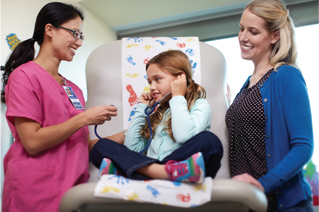
Breast Cancer Alliance
Navigating Access to Breast Cancer Detection, Prevention, and Treatment Amid the Pandemic
There are few words more terrifying for a patient to hear than “you have cancer.” While this COVID-19 pandemic has left all of us in its wake, be it the isolation, loss of jobs, health insurance, compromised health or the loss of a loved one, there has perhaps never been a more frightening time to be grappling with a cancer diagnosis as well.
I am not a breast cancer survivor, but my grandfather was, my aunt is, and I have known many friends and colleagues who have been diagnosed and both won, and lost, to this disease. As Executive Director of Breast Cancer Alliance, I have met countless individuals who can say the same. A young woman diagnosed at 26 with no family history; a grandmother taken by late-stage breast cancer; a vibrant 40-year-old living with metastatic illness hoping to see her children grow up, graduate, marry and become parents themselves; a man who went through breast cancer twice, the third generation of men in his family to do so, and the challenges and side-effects of drugs targeted to treating what so many perceive to be a woman’s disease.
One in eight women will be diagnosed with breast cancer in her lifetime and less than one in 1000 men. Unlike popular misconceptions, you need not have a family history to get breast cancer. Nearly 80% of cases are random. Perhaps lifestyle, perhaps environment – the reasons are yet unknown, but what we do not is that early detection plays a tremendous role in saving lives and managing outcomes. Breast surgeons who are specially trained and highly-skilled improve outcomes and quality of life. Research is the place from which the cures, and still unanswered questions about prevention, will come.
So what happens when the world faces a pandemic? Screening mammograms stop. Diagnostic mammograms are done on a case by case basis. Surgeries are put on hold if they are considered elective. Research stalls as limits are put on lab access and the number of staff allowed in those small, tight spaces. Only fear and anxiety rise. Patients worry what a delayed mammogram might mean if they will be exposed to COVID when they go for chemotherapy or radiation, if their diagnosis will be exacerbated by putting off surgery. he search for treatment will slow if lab experiments fall apart. More and more patients are facing barriers of access to care due to diminished wages or loss of insurance.
So what has Breast Cancer Alliance done to help? We hosted a fitness challenge in May and raised over $100,000 to send to hospitals with patients who need added financial support. Exercise plays an important role in both prevention and recovery. We also held a virtual medical symposium that not only addressed advances in breast cancer treatment, diet, and therapies but also allowed doctors to talk about best practices during this difficult time: telehealth, sticking with treatment plans, resuming screening, and so on. We are proud of how we have continued our support and are committed to continuing to do so to encourage wellness and best practices for all. October 15 is National Mammography Day. Please make your appointment, bring a friend in the car with you if you need the extra support, but go.
Written by Yonni Wattenmaker, Executive Director of Breast Cancer Alliance
For more than two decades, Breast Cancer Alliance has worked in unique and critical ways to improve survival rates and quality of life for those fighting this disease by funding innovative, early-stage research, supporting the breast health needs of underserved women, and propelling more breast surgeons into the field. Statistically, breast cancer will touch all of us, and the pandemic has exacerbated the challenges already associated with diagnoses. This once local organization is proud to now be making a national impact as one of the leaders in this space, advancing strides in the field of breast cancer.


